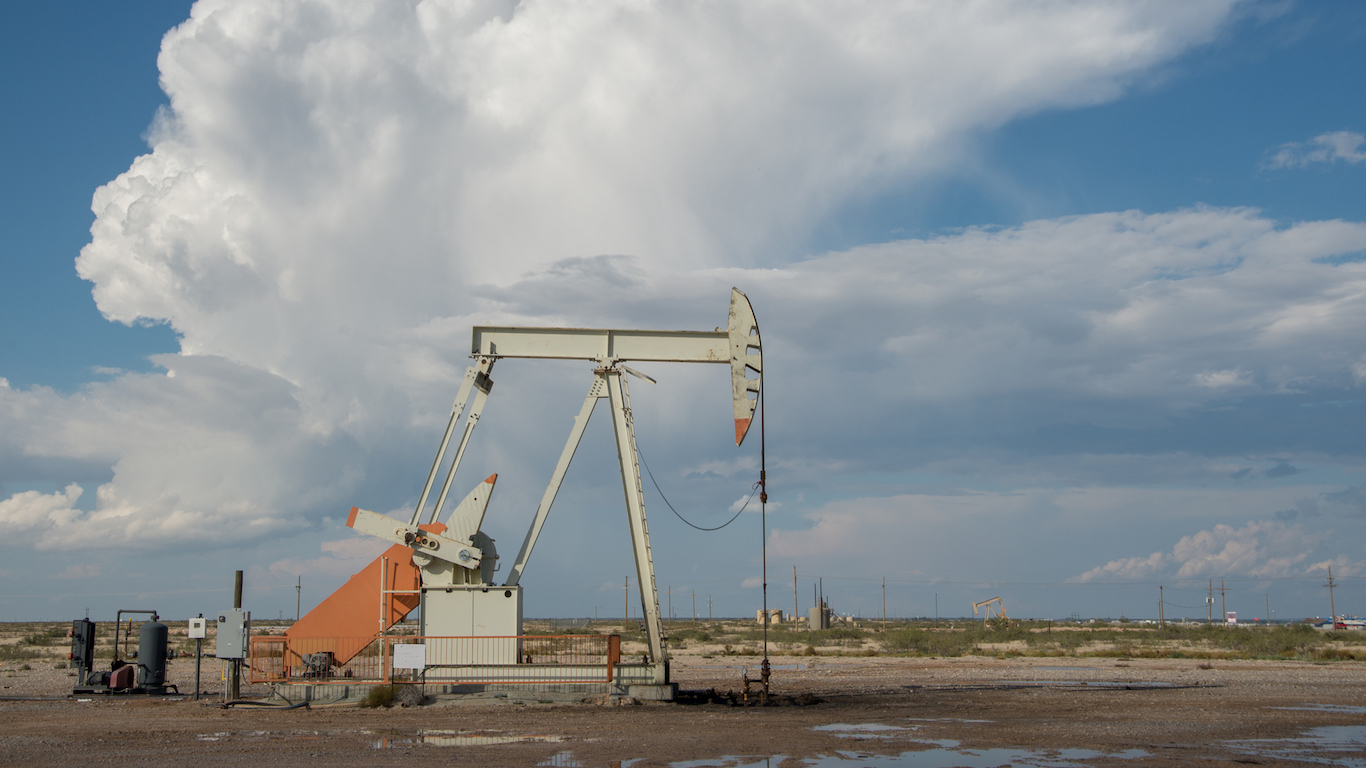Energy
Chesapeake Beats Estimates, Then Spends $4 Billion on an Acquisition

Published:
Last Updated:

When Chesapeake Energy Corp. (NYSE: CHK) reported third-quarter 2018 results before markets opened Tuesday, the oil and gas exploration and production company posted adjusted earnings per share (EPS) of $0.19 on revenues of $2.42 billion. In the same period a year ago, the company said it adjusted EPS of $0.12 on revenues of $1.94 billion. Third-quarter results also compare to consensus estimates for a EPS of $0.15 and $2.35 billion in revenues.
If Chesapeake had left well-enough alone, the share price might be up a few points instead of down nearly 13. Along with earnings the company announced a $4 billion acquisition (including $930 million in debt) of WildHorse Resource Development Corp. (NYSE: WRD). If there’s one thing most investors don’t want to hear about from Chesapeake, it’s that the company is adding more debt. At the end of the third quarter, Chesapeake reported net debt of $9.86 billion, down from $9.98 billion at the end of 2017.
WildHorse shareholders will have a choice of taking 5.989 shares of Chesapeake for each share of WildHorse or 5.336 shares of Chesapeake stock plus $3 in cash. Chesapeake said it will finance the estimated $275 million to $400 million in cash with its revolving credit facility. The company said in its earnings report that it has liquidity totaling about $2.2 billion in the revolver and outstanding borrowing of $645 million and $182 million in outstanding letters of credit.
Chesapeake said that adjusted oil production estimates for 2020 will double to 160,000 to 170,000 barrels a day and that oil production will increase from approximately 19% of its product mix today to 30% in the same period.
In a comment on the WildHorse acquisition, Chesapeake CEO Doug Lawler said:
This transaction accelerates Chesapeake’s strategic plan and expands the value-creation opportunities for our shareholders by adding a premier asset at an attractive valuation, significantly boosting oil production, EBITDA margins and cash flow growth, while improving our leverage metrics. The addition of WildHorse, together with our substantial growth profile in the Powder River Basin, advances our transformation into a highly competitive company with a diverse portfolio of high-quality assets, a stronger balance sheet and meaningful oil-growth potential.
Chesapeake also said that the transaction accelerates progress toward its goal of twice net debt to EBITDA ratio; improves projected 2019 net debt to EBITDA ratio to approximately 3.6 times and projected 2020 net debt to EBITDA ratio to approximately 2.8 times, based on current strip prices.
The deal is expected to close in the first half of next year. Chesapeake noted that it expects over 80% of its future drilling and completion work will be aimed at “high-margin oil opportunities” like the WildHorse acreage in the Eagle Ford and Austin Chalk plays and Chesapeake’s own positions in the Powder River Basin.
The acquisition is a clear win for WildHorse shareholders and could turn out well for Chesapeake shareholders too if the company can keep costs under control and oil prices don’t collapse.
Chesapeake’s shares traded down more than 13% in Tuesday at $3.23, after closing Monday at $3.72. The stock’s 52-week range is $2.53 to $5.60, and the consensus target price was $4.68 before this report. The highest price target was $8 a share.
Retirement planning doesn’t have to feel overwhelming. The key is finding expert guidance—and SmartAsset’s simple quiz makes it easier than ever for you to connect with a vetted financial advisor.
Here’s how it works:
Why wait? Start building the retirement you’ve always dreamed of. Click here to get started today!
Thank you for reading! Have some feedback for us?
Contact the 24/7 Wall St. editorial team.